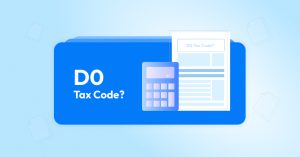A tax code is a collection of numbers and letters used to calculate the amount of taxes that are going to be deducted from your wages, salary, or pension. The code itself can be either simple, like 1280L, RT2, or more complex such as 777L. Typically, it will be determined by your provider and may change periodically according to your income, deductions, and other factors.
So whether you are a full-time employee or receive a private pension, understanding what your tax code means is an important step in managing your finances and ensuring that you are paying the correct amount of taxes. With the right tools and resources at your disposal, you can confidently navigate the tax code system and manage your taxes effectively.
How do I find my Tax Code?
Depending on your provider, you may be able to find your tax code online or over the phone. Typically, you will need to provide some basic information such as your name, address, and social security number in order to access this information. Alternatively, you can check with your employer or pension provider directly to determine your tax code. You can also find your tax code on your;
- payslip
- p60
- p45
- HRMC online services
- Pension Advice Slip
- PAYE Code Notice
What does my tax code mean?
Depending on your tax code, this may indicate a number of different factors such as your income level, what deductions you are eligible for, and whether or not you have additional allowances.
- For example, a code that starts with the letter "K" typically indicates that you have received no allowances or deductions and will be taxed at the highest rate possible.
- Alternatively, a code that starts with the letter "L" indicates that you are eligible for certain tax-free or income-based allowances.
- Tax code starting with "BR" or "NT" typically indicates that you are a married individual filing jointly and have additional allowances,
- while codes starting with "M" or "S" typically indicate that you are eligible for other tax-free contributions such as medical care.
- Tax Code starts with "D0" or "NT" and typically indicates that your total income is below the tax-free threshold and you are therefore not liable to pay any taxes.
- Tax Code starts with "SD2" or "NT2" and typically indicates that you are eligible for additional tax reliefs due to being under a certain age, having dependents, or other factors.
- Tax Code starts with "T" or "NT" typically indicates that you are under the age of 65,
- while codes starting with "R", "Y", or "T" usually indicates that you are considered a non-resident in the UK tax system.
At the same time, it's important to keep in mind that tax codes can change periodically, so it's crucial to stay up-to-date with any updates or changes. With the right tools and with the right tools and resources, you can manage your finances confidently and effectively!
Therefore, it is important to understand what your tax code means in order to manage your finances effectively and ensure that you are paying the correct amount of taxes. With the right tools and resources at your disposal, you can stay up-to-date and proactive in managing your tax code.













